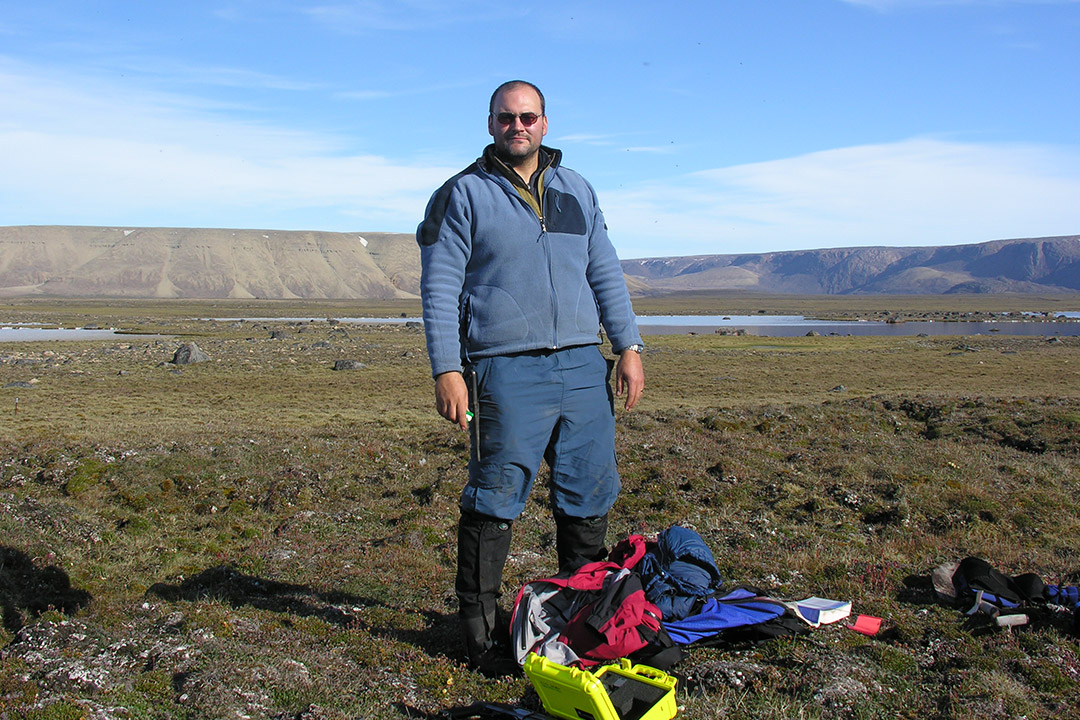“Fertilizer is key to a safe and sustainable food supply,” said Siciliano, NSERC/Co-op Industrial Research Chair in In Situ Remediation and Risk Assessment. “However, the incidental release of fertilizers during distribution can cause environmental damage. The program will focus on ways to minimize the damage, restore ecosystems adversely impacted during fertilizer distribution, and develop cost-effective methods of remediation.”
Including $432,000 in funding from the U of S, $432,000 in internship stipends from four industry partners, and $239,000 from other participating universities, the Sustainable Applied Fertilizer Environment Remediation (SAFER) graduate training program is worth a combined total of about $2.7 million.
Siciliano has assembled a 10-person team of academic and industry experts in soil science, renewable resources, land and food systems, indigenization, toxicology, fertilizer management, and agriculture for the SAFER program.
“Through this major public-private investment, we will work with industry to address a global problem involving fertilizer distribution that has particular relevance for Western Canada,” said Karen Chad, U of S vice-president research.
“This tremendous collaboration among universities, academic disciplines and industry will train scientists who will safeguard the environment and help industry and communities with cost-effective remediation solutions.”
In collaboration with the European Union’s International Masters in Applied Ecology (IMEA) program, SAFER will train 29 master’s and 13 PhD students from Western Canada and Europe, providing them with a unique learning opportunity that transcends disciplines and borders.
“The goal of SAFER is to integrate training with addressing the scientific and practical challenges of remediation, and help students transition into research and industry careers,” said Siciliano.
Canadian students will spend nine months in France and Portugal learning about applied ecology before returning to apply their knowledge at home, while some of the best European students have the chance to work in Canada not just at universities but also at paid internships in private sector companies.
The international experience and internships encourage students to develop communication, project management and leadership skills in academic, industrial, and Indigenous settings.
Production, warehousing and transportation of fertilizer can harm the environment if the nitrogen, phosphorous, potassium, and sulphur are accidentally released. Sustainable remediation of these sites is a pressing agro-economic challenge in Canada and elsewhere, said Siciliano.
Major changes in recent years to environment regulations require companies to clean up fertilizer sites, Siciliano said. Remediation is important because the high concentrations of fertilizer can pollute groundwater. But remediation costs can often surpass $1 million per location, often far exceeding the property value of bulk fertilizer plants, requiring the development of more cost effective solutions.
The Canadian component of the program includes collaboration among researchers from the U of S and three other universities (University of Alberta, University of Manitoba and University of British Columbia), and private-sector companies — consulting engineering firm Amec Foster Wheeler, Federated Co-operatives Limited Ltd. (FCL), United Farmers of Alberta (UFA), and CHS Inc. Also collaborating is the International Minerals Innovation Institute, jointly funded by industry and government to provide education, research, and training partnerships to support a world-class minerals industry.
FCL, UFA and CHS are founding members of the Sustainable In-situ Remediation Co-operative Alliance (SIRCA), which promotes the development and implementation of sustainable environmental management practices. SIRCA asked Siciliano for help in training professionals in Western Canada who could address fertilizer remediation in ways that take into account the needs of the industry and affected communities.
Quotes from partners
“Fertilizer is an important part of Co-op’s long-term growth strategy in the agriculture sector. By collaborating in SIRCA and supporting initiatives like SAFER, we’re developing innovative solutions and managing the impact of our business at fertilizer sites.”
— Brad Bauml, FCL Executive Vice-President Ag and Consumer Business
“Being part of SIRCA and securing grants like this one from NSERC supports the development of new technology from academia and promotes its transfer to industry.”
— Mark Tse, UFA Environment, Health and Safety Director
“The SAFER program will develop the interdisciplinary skills practitioners need for the management of soil, water and air impacts related to fertilizer storage, handling and application. As a partner to the agro-chemical industry in this important program, we are committed to advancing the state of the practice for environmentally sustainable fertilizer management.”
— Patrick Campbell, Amec FW senior associate environmental scientist
“By empowering our country’s talented young researchers to pursue their ambitions and gain the hands-on experiences they need for the jobs of tomorrow, our government is paving the way to a bolder, brighter future for our country. This investment will give some of the most promising science and engineering graduate students and postdoctoral fellows the support they need to make an important difference in their lives and the lives of others.”
— Kirsty Duncan, Minister of Science
-30-
For more information, contact:
Jennifer Thoma
Media Relations Specialist
University of Saskatchewan
306-966-1851
jennifer.thoma@usask.ca
